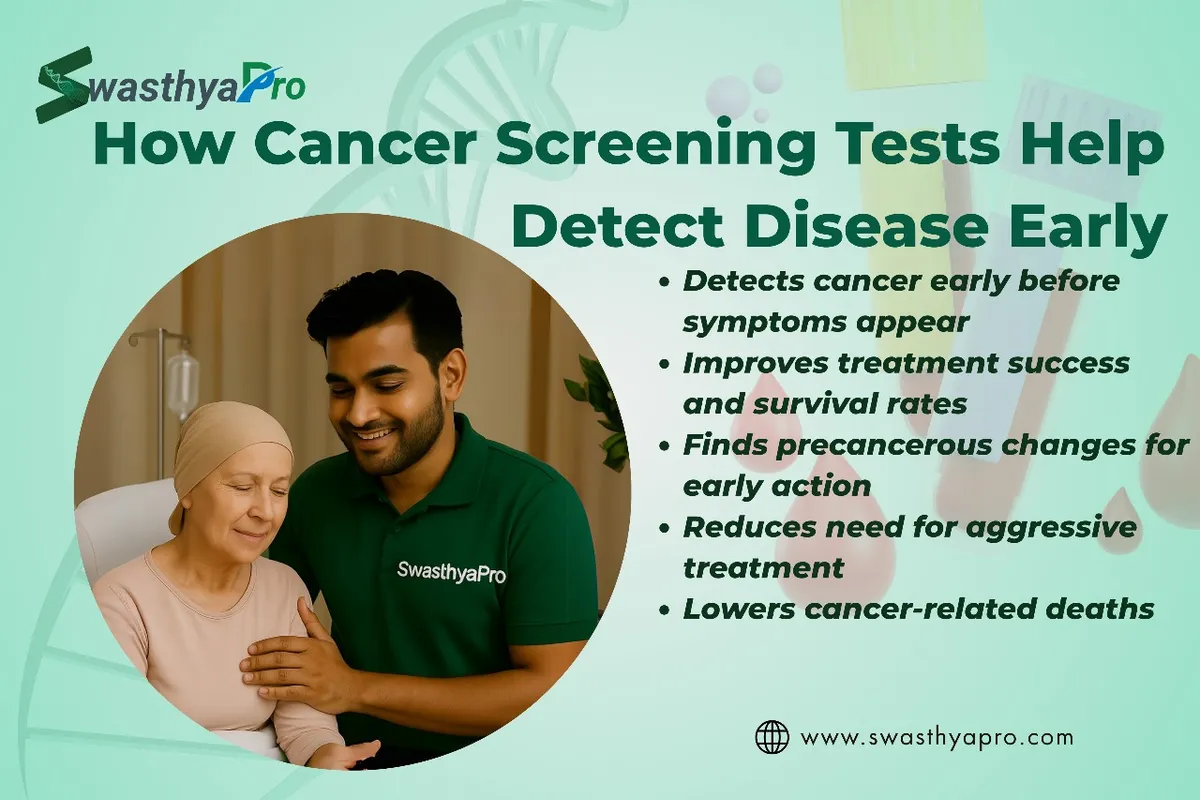Top 5 Cancer Screening Tests Everyone Should Know About

Cancer is one of the leading causes of death worldwide. But there’s some good news — when caught early, many types of cancer can be treated successfully. That’s where Cancer Screening Tests come in. These tests help find cancer before symptoms appear. Early detection means a better chance of survival and easier treatment. This article will walk you through the top 5 Cancer Screening Tests everyone should know about, so you can stay informed, stay ahead, and stay healthy.
1. Mammogram (For Breast Cancer)
A mammogram is a type of X-ray used to check for breast cancer. It’s one of the most common Cancer Screening Tests for women. Doctors recommend that women over the age of 40 start getting mammograms regularly, especially if there’s a family history of breast cancer. The test is quick and usually takes about 20 minutes.
Why it matters: Breast cancer found through Cancer Screening Tests like a mammogram is often smaller and hasn’t spread yet — making it much easier to treat.
2. Pap Smear and HPV Test (For Cervical Cancer)
The Pap smear, often done alongside the HPV (human papillomavirus) test, checks for abnormal cells in the cervix that could turn into cancer. This is one of the key Cancer Screening Tests for women, especially between the ages of 21 and 65.
Why it matters: Cervical cancer often has no symptoms in its early stages, but Cancer Screening Tests like the Pap smear can catch changes before they become dangerous.
3. Colonoscopy (For Colorectal Cancer)
A colonoscopy is a test that looks at the inside of your colon and rectum. It helps detect colorectal cancer or polyps that could turn into cancer over time. This test is typically recommended starting at age 45. While a colonoscopy sounds intimidating, it’s one of the most powerful Cancer Screening Tests for preventing cancer before it starts.
Why it matters: Removing a polyp during this Cancer Screening Test can actually prevent cancer from developing. That’s a powerful tool in your hands.
4. Low-Dose CT scan (For Lung Cancer)
For people who have a history of heavy smoking, a low-dose CT scan can help detect lung cancer early. This test uses low doses of radiation to take detailed images of your lungs. It’s one of the most effective Cancer Screening Tests for smokers or former smokers aged 50–80 who meet certain criteria.
Why it matters: Lung cancer often shows no symptoms until it’s in an advanced stage. This Cancer Screening Test can catch it early, when treatment works best.
5. PSA Blood Test (For Prostate Cancer)
The PSA test measures the level of prostate-specific antigen in the blood. High levels may be a sign of prostate cancer. This is one of the most common Cancer Screening Tests for men, usually recommended starting at age 50 — or earlier if there’s a family history.
Why it matters: While not perfect, this Cancer Screening Test can help start important conversations and guide further testing or monitoring.
Why Cancer Screening Tests Matter
Cancer Screening Tests are not just medical procedures — they are tools for peace of mind. When used correctly, they save lives. Many people fear cancer because they think it means pain and hopelessness, but that’s not always true. With early detection through Cancer Screening Tests, many people go on to live long, healthy lives.
It’s important to understand that Cancer Screening Tests don’t always mean you have cancer. They simply check if something might be wrong and help doctors look deeper. Think of them as your body’s regular check-in.
How Often Should You Get Cancer Screening Tests?
The answer depends on your age, gender, lifestyle, and family history. Your doctor can guide you based on your personal risk. But one thing is clear — ignoring Cancer Screening Tests because you “feel fine” is not a smart move. Many cancers don’t show symptoms until they’ve spread. Cancer Screening Tests can be your first line of defense.
Getting Cancer Screening Tests doesn’t mean you’re expecting bad news — it means you’re taking control of your health. The top 5 Cancer Screening Tests we talked about — mammograms, Pap smears, colonoscopies, lung scans, and PSA tests — are simple steps that can lead to life-saving results.
Talk to your doctor. Know your family history. Set a reminder on your phone if needed. Just don’t skip these important Cancer Screening Tests. Your future self will thank you.